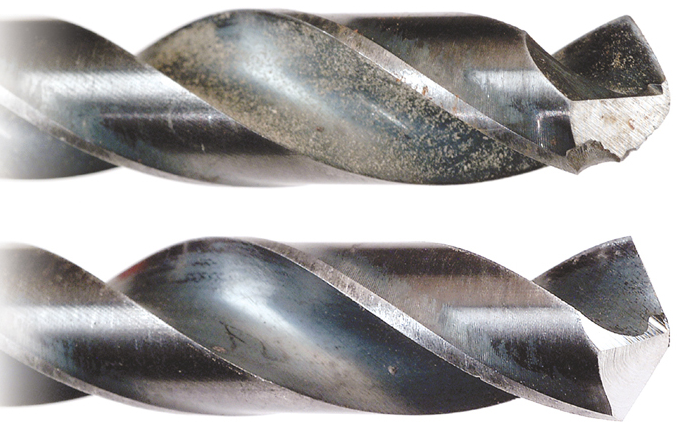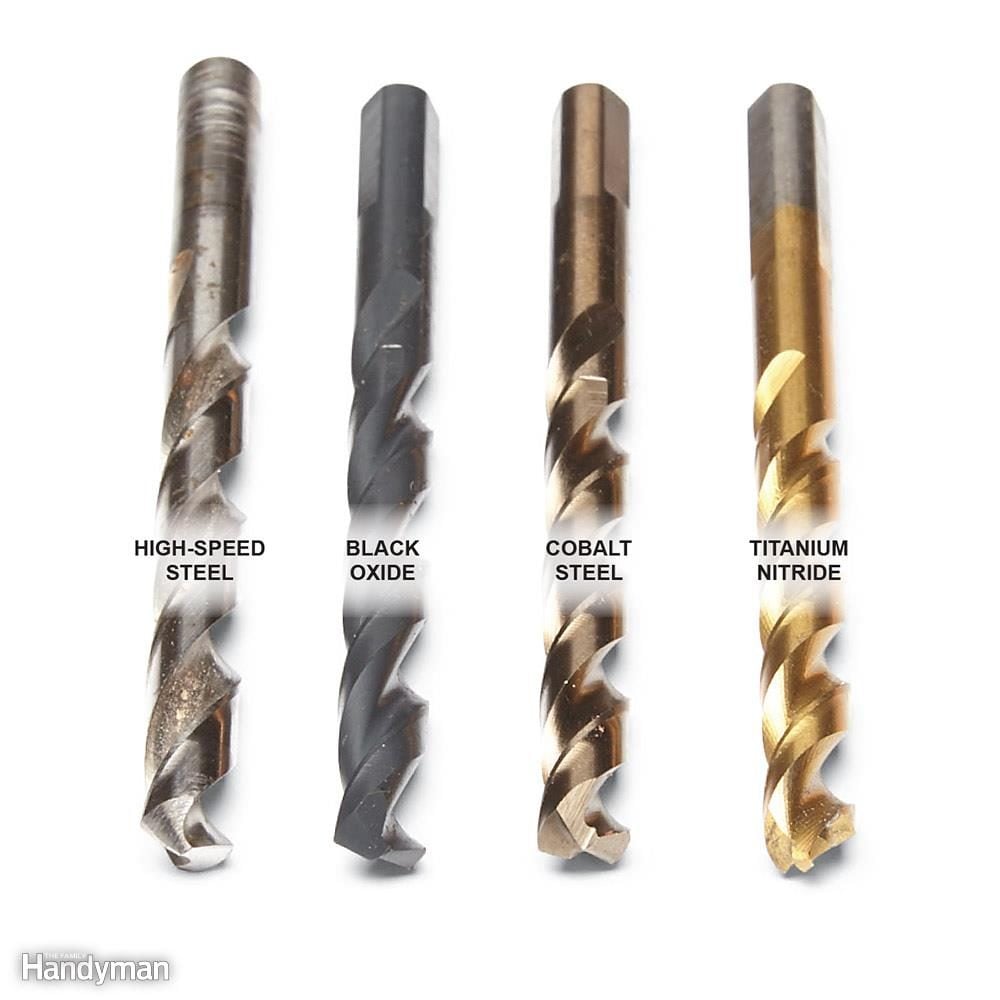Hey there! Have you ever wondered if drill bits go dull? Well, let’s find out!
When it comes to drilling, having a sharp and efficient drill bit is crucial. But over time, drill bits can become dull and lose their cutting power.
In this guide, we’ll explore the reasons why drill bits go dull and how you can keep them in top shape. So, let’s dive in and unravel the mysteries of drill bit dullness!
Do Drill Bits Go Dull? Here’s What You Need to Know
Drill bits can indeed go dull over time due to wear and tear. To keep your drill bits in excellent condition, follow these maintenance tips:
1. Clean the bits after each use
2. Sharpen the bits regularly
3. Use appropriate drill speed
4. Use cutting lubricant
5. Store the bits properly
By following these steps, you can extend the lifespan of your drill bits and ensure optimal performance.

Do Drill Bits Go Dull? Unveiling the Truth Behind Drill Bit Performance
Introduction:
Have you ever wondered if drill bits lose their sharpness over time? If you’re a DIY enthusiast or a professional in the construction or woodworking industry, you’ve likely encountered this question before. In this article, we will delve into the world of drill bits, exploring their durability and the factors that contribute to their performance. Whether you’re using drill bits for occasional household projects or heavy-duty industrial work, understanding the lifespan and maintenance of drill bits is essential for achieving optimal results.
Understanding Drill Bit Durability and Performance
The Science Behind Drill Bit Wear
When we talk about drill bits going dull, what we really mean is that their cutting edges become worn and less effective. Drill bits are typically made from high-speed steel (HSS), cobalt, or carbide materials, each varying in hardness and durability. As drill bits encounter various materials during drilling, wear naturally occurs. The abrasion can be attributed to several factors, including the hardness of the material being drilled, the drilling speed, and the cutting angle of the drill bit. Over time, the cutting edges can become rounded or chipped, leading to a decline in performance.
The Role of Material Hardness
One of the primary factors that determine drill bit lifespan is the hardness of the material being drilled. Drill bits are designed for specific materials, such as wood, metal, or masonry, with each material requiring a different type of bit. Softer materials like wood may cause less wear on the drill bit compared to tougher materials like metal or concrete. It’s crucial to use the right type of drill bit for the specific material to maximize its lifespan.
Drilling Speed and Heat Generation
Another critical factor affecting drill bit wear is the drilling speed. High speeds generate more heat, increasing the chances of thermal degradation and dulling the cutting edges. Conversely, slower speeds exert less stress on the drill bit and reduce the detrimental effects of heat. Optimal speed varies depending on the material being drilled, and it’s essential to consult the manufacturer’s recommendations for the specific drill bit.
Importance of Cutting Angle
The cutting angle of the drill bit plays a significant role in its durability. Drill bits with sharper angles tend to be more aggressive in their cutting action but can also wear out faster. Conversely, drill bits with smaller angles may be less prone to wear, but they require more force to achieve a proper drilling result. Strike a balance between cutting angle and force to maximize the lifetime and performance of your drill bits.
Extending the Lifespan of Drill Bits
Maintaining Drill Bits for Optimal Performance
Proper maintenance can significantly extend the lifespan of your drill bits. Here are some tips to keep your bits sharp and in excellent condition:
Frequent Inspection and Cleaning
Regularly inspect your drill bits for signs of wear, such as rounded edges or chips. If you notice any damage, it’s best to replace the drill bit. Additionally, clean your drill bits after each use to remove debris and prevent it from affecting their performance. Use a soft brush or cloth to remove any dirt or residue.
Correct Storage and Organization
To avoid unwanted damage or dulling of drill bits, store them in a dedicated case or organizer. This will prevent them from knocking against other tools or surfaces, reducing the risk of chipping or blunting.
Choosing the Right Drill Bit for the Job
Selecting the appropriate drill bit for the material you’re working with is crucial. Using the wrong type of bit can lead to premature wear and poor drilling results. Consider the material’s hardness, consult professional advice if necessary, and invest in high-quality drill bits tailored for specific applications.
Regular Sharpening and Reconditioning
When drill bits become dull, it’s possible to restore their sharpness through sharpening or reconditioning. Manual sharpening can be done using a drill bit sharpening tool, while more advanced methods like regrinding or resharpening can be performed by professionals. Regularly assess the condition of your drill bits and consider sharpening them as needed to maintain their performance.
In conclusion, drill bits do go dull over time due to wear and tear from drilling different materials. The lifespan of a drill bit depends on various factors such as material hardness, drilling speed, and cutting angle. By understanding these factors and implementing proper maintenance practices, you can maximize the lifespan and performance of your drill bits. Remember to choose the right drill bit for the job, inspect and clean them regularly, and consider sharpening or reconditioning when necessary. With these tips, you can ensure that your drill bits remain sharp and effective for all your drilling needs.
Key Takeaways: Do Drill Bits Go Dull?
- Yes, drill bits can go dull with use.
- Factors such as material, speed, and pressure can all contribute to drill bit dulling.
- Regular maintenance and sharpening can extend the life of drill bits.
- Using the correct drilling technique can help prevent drill bit dulling.
- Replacing a dull drill bit with a sharp one can improve drilling efficiency and results.
Frequently Asked Questions
Welcome to our frequently asked questions section where we address common inquiries about drill bits. Whether you’re a DIY enthusiast or a professional, you may have wondered about the longevity of drill bits and whether they go dull. Below, we answer some key questions to help you understand this topic better.
1. How long does it take for drill bits to go dull?
The lifespan of drill bits can vary depending on several factors such as the type of material being drilled, the quality of the bit, and the intensity of use. In general, drill bits can start to go dull after a significant amount of usage, which could range from a few hours to several weeks or months.
However, it’s important to note that regular maintenance and proper usage can significantly extend the life of drill bits. Avoiding excessive pressure, using the correct speed settings, and periodically sharpening the bits can help prolong their sharpness.
2. How can I tell if my drill bits have gone dull?
There are a few signs that can indicate that your drill bits have gone dull. One common indication is a decrease in cutting efficiency. If you notice that the drill bit is taking longer to penetrate the material or if it’s producing more heat than usual, it’s likely that it has gone dull.
Another sign is a change in the appearance of the cutting edges. Dull drill bits may have rounded or chipped edges, unlike sharp bits that have clean and crisp cutting edges. Additionally, if you’re experiencing more resistance or the bit is causing the material to splinter or crack, it may be time to replace the dull bit.
3. Can drill bits be sharpened to regain their sharpness?
Yes, many drill bits can be sharpened to restore their sharpness and extend their lifespan. However, this depends on the type of bit and its condition. Twist bits, for example, can often be sharpened using a drill bit sharpener or a bench grinder.
It’s worth noting that not all drill bits can be easily sharpened, such as carbide or diamond bits. These types of bits are typically more expensive, and once they go dull, it is often more cost-effective to replace them rather than attempting to sharpen them.
4. How often should I replace my drill bits?
As a general rule, it’s a good idea to inspect your drill bits regularly and replace them when necessary. Pay attention to signs of dullness or damage, and replace any bits that are no longer performing optimally. The frequency of replacement will depend on factors such as the type of material being drilled and the intensity of use.
If you’re consistently working with tough materials or using your drill frequently, you may need to replace your bits more often. Conversely, if you rarely use your drill or work with softer materials, your bits may last much longer. Ultimately, it’s important to monitor the condition of your drill bits and replace them as needed to ensure efficient and safe drilling.
5. Are there any preventative measures I can take to prolong the life of my drill bits?
Absolutely! There are several steps you can take to extend the lifespan of your drill bits. One essential measure is using the correct drill bit for each material you’re working with. Different materials require different types of drill bits, and using the wrong bit can lead to rapid dulling or even damage.
Proper maintenance is also crucial. This includes regular cleaning of the bits to remove debris and prevent build-up that can affect their performance. Additionally, using lubrication or cutting oil can reduce friction and heat generation during drilling, which can help prolong the life of the bits. Lastly, always use the appropriate drilling speed and avoid applying excessive pressure, as this can cause the bits to go dull more quickly.

Drill Doctor! put up with dull drill bits no longer!
Summary
So, to sum it up, drill bits do go dull over time. This happens because the sharp edges wear down from the friction and heat generated during drilling. Constant use and drilling into tough materials can also contribute to dulling.
However, there are ways to prolong the life of your drill bits. Regularly cleaning them and using lubrication can help reduce heat buildup and friction. Investing in high-quality drill bits and using the right ones for the job can also make a difference. And don’t forget to store them properly to avoid damage and keep them sharp for longer. So, take care of your drill bits, and they’ll serve you well!
